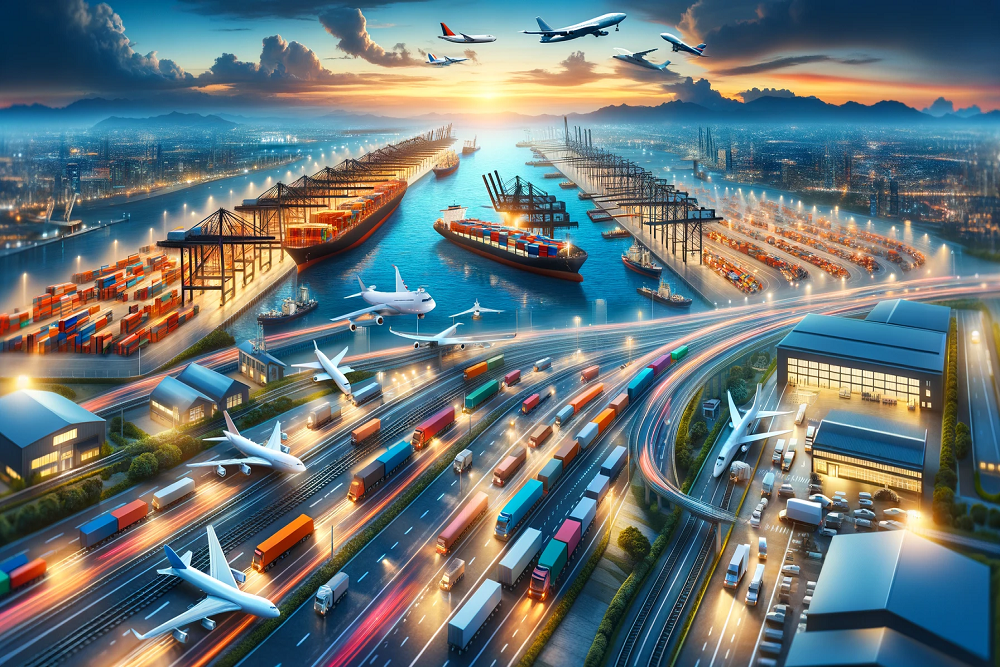
In the fast-paced world of e-commerce, supply chain, and distribution, the efficiency of last-mile delivery can make or break a business.
The last mile of delivery is one of the most time-consuming, complex and costly parts of the supply chain. 25% of companies list “delivery efficiency” as their biggest last-mile challenge. Last-mile delivery costs account for a shocking 53% of the total cost of shipping, and up to 41% of the total supply chain costs!
With consumer buying behaviors changing, and expectations of free and fast delivery increasing, companies are looking for ways to improve efficiency and lower costs to fulfil their shipping logistics. An astonishing 51% of customers demand same-day or next-day delivery from their last-mile services, putting more emphasis on logistics and fulfillment now more than ever before!
Navigating through crowded urban areas, dealing with heavy traffic, and optimizing delivery routes in real time has proven to be extremely challenging for logistics providers. AI-driven route optimization addresses these challenges by analyzing vast amounts of data, considering multiple variables, and making intelligent decisions to optimize the delivery process.
The Solution: AI-Driven Route Optimization
Apart from frustrated customers due to delayed deliveries, inefficient routes can also have far-reaching environmental consequences from increased fuel consumption and higher emissions. So, the impact of leveraging AI for route optimization is not just financial; it also translates into a significant reduction in the carbon footprint, aligning with the growing emphasis on sustainable business practices.
With advanced AI-driven route optimization tools, businesses can save up to 20% in mileage, 10% in transportation costs, improve their delivery times by 5%, and increase their order capacity by as much as 100% without increasing their fleet.
AI algorithms are revolutionizing last-mile delivery by optimizing routes based on a myriad of factors. These algorithms analyze historical data, real-time traffic/road conditions, weather forecasts, and even customer preferences to create the most efficient delivery routes. This level of efficiency is way above the capabilities of standard route planning methods.
Here’s how AI-driven route optimization leads to a more efficient and streamlined last-mile delivery process:
Real-Time Adaptability:
One of the key advantages of AI-driven route optimization is its ability to adapt in real-time. Traffic jams, road closures, and other unforeseen circumstances can disrupt traditional route plans. AI algorithms, however, continuously analyze incoming data and adjust routes on the fly, ensuring that delivery vehicles take the most efficient path to their destinations.
This dynamic adaptability not only enhances delivery speed but also enables logistics companies to provide accurate delivery time estimates to customers.
Predictive Analytics
Machine learning algorithms can also analyze historical data to predict future delivery patterns and challenges. By anticipating peak delivery times, traffic bottlenecks, and other factors, the system can proactively adjust routes to optimize efficiency.
Resource Optimization
AI-driven systems look into various factors like vehicle capacity, delivery time windows, and specific customer preferences. By optimizing resource allocation, the algorithms ensure that vehicles are used efficiently to accommodate varying delivery demands.
Reduced Costs
Efficient route planning, reduced fuel consumption, and optimized resource utilization lead to significant cost savings. Just by reducing the miles covered, AI-powered route optimization algorithms can reduce the cost of deliveries by up to 20% compared to standard route optimization solutions. They have also been shown to lower transportation costs by 10%!
Increased Delivery Speed & Enhanced Customer Experience
Optimal routes and real-time adaptability enable faster delivery times by 5%. Not only this, but AI-driven route optimization also allow businesses to keep their customers updates about the status of their deliveries. Customers can receive notifications, live tracking information, and choose delivery preferences, resulting in a positive and transparent customer experience.
Scalability and Efficiency
AI systems are designed to scale with growing delivery demands. The ability to handle increased order volumes while maintaining efficiency ensures that businesses can adapt to market changes and seasonal variations and improve your order capacity by as much as 100% without increasing your fleet!
Environmental Impact
By optimizing routes and reducing fuel consumption, AI-driven route optimization contributes to a more sustainable and environmentally friendly last-mile delivery process. This aligns with the increasing emphasis on corporate social responsibility and sustainability practices.
The Future of Last-Mile Delivery
AI-driven route optimization is a transformative force in the realm of last-mile delivery. The statistics speak for themselves, with significant cost savings, reduced environmental impact, and improved customer satisfaction. As logistics companies continue to navigate the challenges of the modern supply chain, embracing AI is not just an option; it’s a necessity for staying competitive and meeting the ever-growing demands of the e-commerce era. For more information, write to us at hello@felixsolutions.ai
